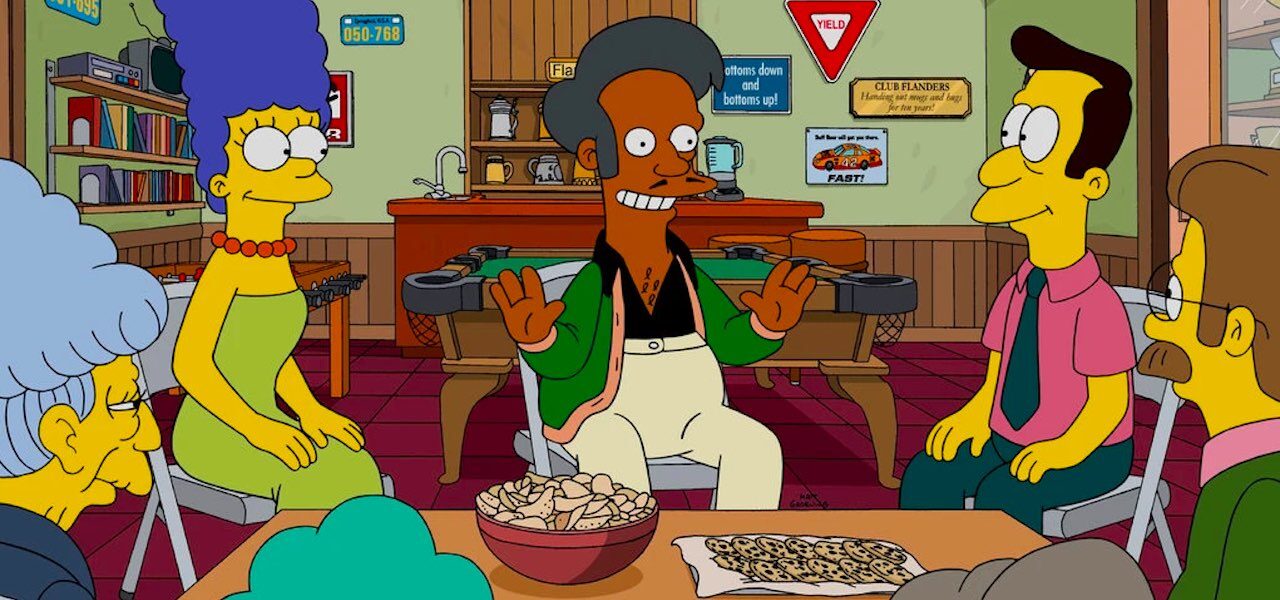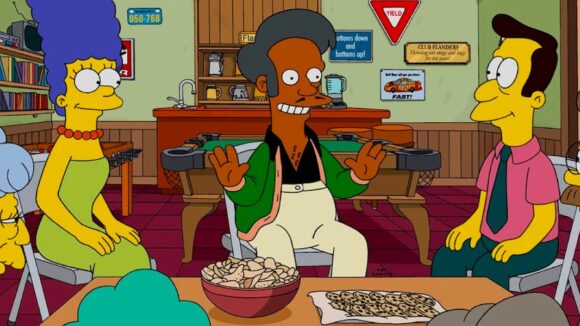

Hank Azaria Explains Why He’s Stopped Voicing Apu On ‘The Simpsons’
For decades, Hank Azaria has been the voice of Apu Nahasapeemapetilon, the Indian-American convenience store owner in The Simpsons. For years, he’s been asking himself whether that’s okay.
Azaria’s conclusion: it isn’t. In January, the actor — who is white — confirmed to Slashfilm that he would no longer voice Apu. The announcement came after a heated public debate about the character’s racist implications, triggered by the 2017 documentary The Problem with Apu.
In a new interview this week with The New York Times, Azaria explains his decision in detail.
“Once I realized that that was the way this character was thought of,” he tells the paper, “I just didn’t want to participate in it anymore. It just didn’t feel right.”
The problem with Apu, as articulated by comedian Hari Kondabolu in the documentary, is that he embodies negative stereotypes about Indian-Americans — and perpetuates them, due to the show’s popularity. He can be stingy, unscrupulous, and servile, and he speaks with a caricatured accent. Kondabolu describes Azaria’s performance as “A white guy doing an impression of a white guy making fun of my father.”
Apu’s defenders have been quick to point out his positive traits — he’s highly intelligent — and the nuances of his characterization. Initially, Azaria himself joined others in arguing that stereotyping is simply what The Simpsons does. As he tells the NYT, his first reaction to the documentary was: “We make fun of everyone. Don’t tell me how to be funny.”
But as the controversy heated up, the actor started to open his mind. He read about representation, attended seminars on racism, and discussed the matter with Indian-American friends and colleagues. Many told him that Apu had been so damaging because, for years, he was one of the only representations of their ethnicity on tv. “There hasn’t been an outcry over [other caricatures in The Simpsons] because people feel they’re represented,” he says. “They don’t take it so personally, nor do they feel oppressed or insulted by it.”
The context in which Apu was created (in 1990) has only intensified the criticism. In the past, Azaria admitted that the show’s all-white writing team had explicitly asked him to make the Indian accent as offensive as possible. The actor drew inspiration from Indian and Pakistani clerks he knew, but also the 1968 feature The Party, in which Peter Sellers wears brownface to play an Indian character. Azaria admits that, at the time, he didn’t realize the film could be construed as racist. “That represents a real blind spot I had.”
In 2018, he told Stephen Colbert that he’d be “willing to step aside” from the character. Around a year ago, he informed the show’s executive producers that he wanted to do just that. “They were very sympathetic and supportive. We were all in agreement.”
.@HankAzaria addresses the controversy surrounding the character ‘Apu’ from @TheSimpsons. #LSSC #Apu #TheSimpsons pic.twitter.com/pkmYgcX4Il
— The Late Show (@colbertlateshow) April 25, 2018
But are they? Throughout the controversy, the show’s top brass has shown little sympathy for Apu’s critics. When asked for comment, creator Matt Groening told USA Today: “I think it’s a time in our culture where people love to pretend they’re offended.” After Azaria made his decision public, the show put out a statement in which they said, “Apu is beloved worldwide. We love him too. Stay tuned.”
Whether Apu stays or goes is out of Azaria’s hands. The series is produced by Fox — now a subsidiary of the Walt Disney Company — although network executives have said in the past that they will leave such decisions to the show’s creative team (this report in Vulture has more).
For Kondabolu, the matter of whether Apu will remain as a character is secondary to Azaria’s serious engagement with the subject. “I’m happy that Hank did the work that a lot of people wouldn’t have,” he tells the NYT. “I feel like he’s a really thoughtful person and he got the bigger picture.”
In any case, Azaria is staying with The Simpsons, for which he voices a whole raft of characters. “I love this show,” he says. “I have tremendous pride in doing the show. And the character of Apu was done with love and pride and the best of intentions. My message is, things can be done with really good intentions and have negative consequences.”
Was Azaria right? Should Apu stay? Let us know in a comment below.



